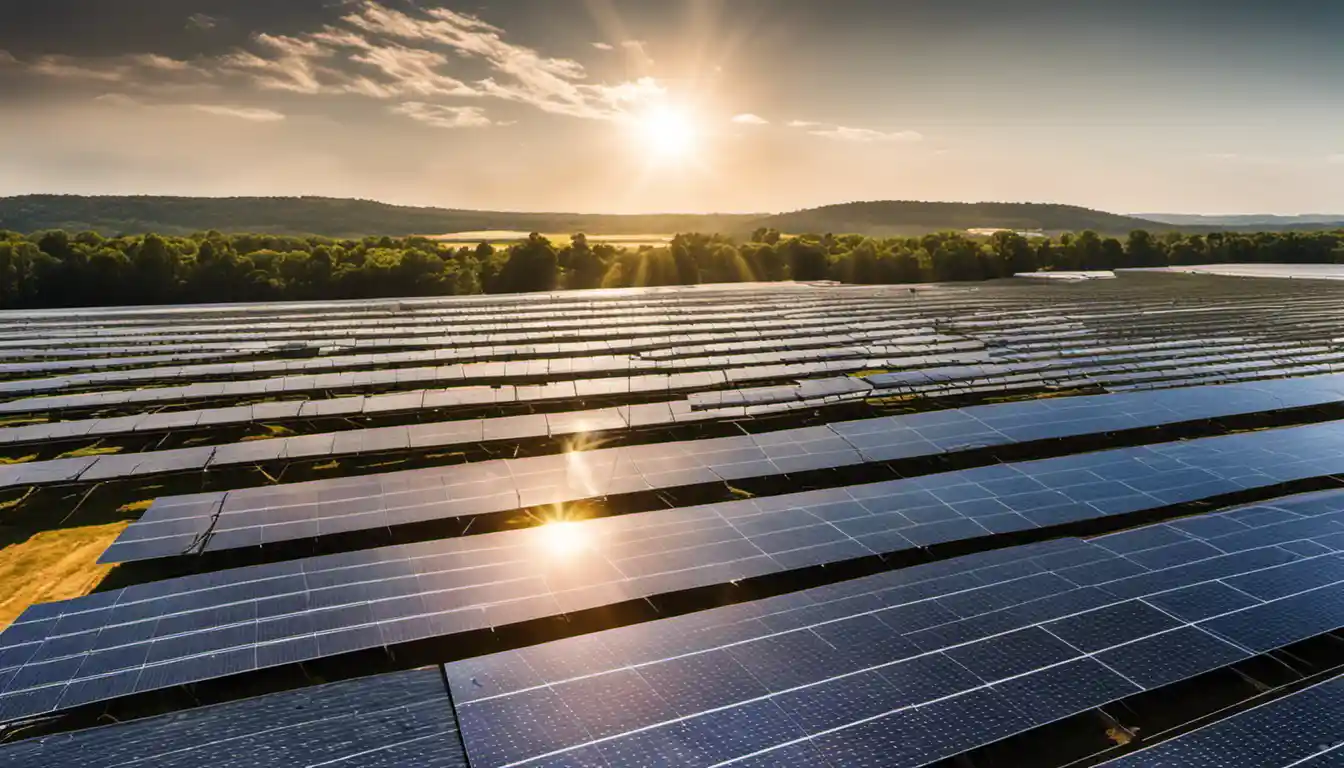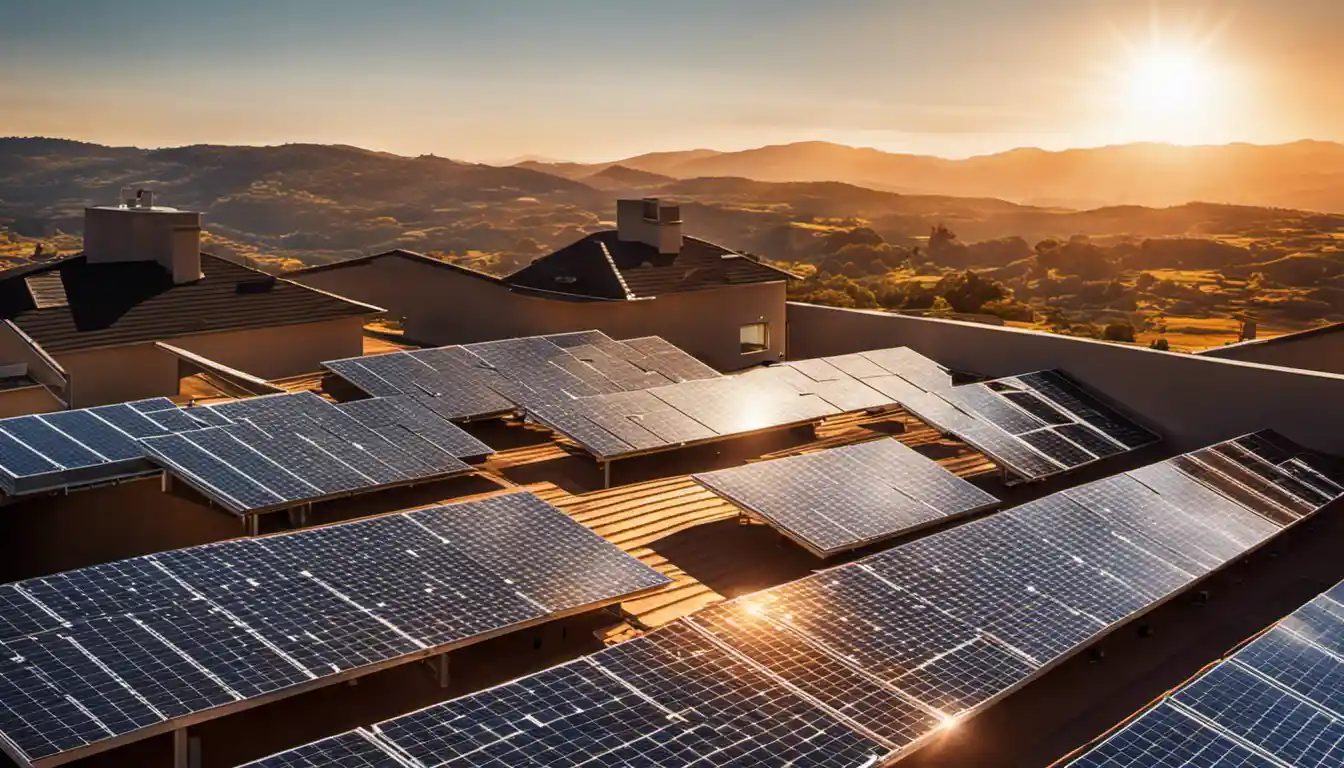Understanding Solar and Geothermal Energy: A Short Introduction
Solar energy is generally considered better than geothermal because it is more abundant, accessible and easier to install. While both are renewable energy sources, solar panels can be deployed virtually anywhere in the world, while geothermal energy can only be harnessed where there are geothermal resources. Additionally, the installation costs for solar panels have been decreasing over the years, making it a more feasible option for many consumers.
Definition of Solar Energy
In the simplest terms, solar energy is the energy we get from the sun. Using a combination of science and ingenuity, we’ve devised ways to convert this energy into electricity using solar panels. These panels contain photovoltaic cells that convert sunlight into electric current – a process known as the photovoltaic effect.
Application of Solar Energy
Solar energy is incredibly versatile. It can be harnessed to power homes, businesses, and even entire communities. If you’ve ever used a solar-powered calculator or noticed a rooftop solar panel array, you’ve seen solar energy applications. Utility-scale solar farms are now common features in many landscapes, sending solar-derived electricity into the grid.
Definition of Geothermal Energy
Geothermal energy, on the other hand, is derived from the internal heat of the Earth. Deep beneath the earth’s crust, the extreme heat generates steam. When captured and converted by geothermal power plants, this steam becomes usable energy.
Application of Geothermal Energy
Geothermal energy is primarily used to heat buildings and generate electricity. However, harnessing geothermal energy is geographically limited to regions near tectonic plate boundaries where geothermal activity is highest.
Is Geothermal Energy Solar Energy?

A common question many of us ask is “Is geothermal energy solar energy?” In brief, the answer is no. While both are naturally-occurring and renewable, solar energy directly harnesses the power of the sun’s rays while geothermal energy exploits the Earth’s sub-surface heat. So, while they may share renewable status and contribute to a cleaner environment, they are fundamentally different energy sources.
Common Ground: What do Geothermal and Solar Energy Share?
Despite the basic difference between geothermal and solar energy, they do share some key attributes. Both are renewable, which means that they replenish naturally, producing a continuous energy supply without depleting the resource. Besides, their operation results in negligible greenhouse gas emissions compared to non-renewable energy sources, making them essential players in battling climate change.
Difference between Geothermal and Solar Energy
While there are commonalities, the difference between geothermal and solar energy is significant when it comes to accessibility, installation, cost, and overall efficiency.
Key Comparisons Between Solar and Geothermal Energy
Weather Dependency: How Weather Influences Output
Solar energy presents a clear edge over geothermal because it’s less sensitive to weather changes. Geothermal solutions can be impacted by heavy rainfall or rapidly changing temperatures, whereas solar panels only need sunlight—which is abundant on most days in numerous locales.
Startup Costs: Comparing Initial Investment

Solar also scores high in the affordable startup costs category. The price of solar panels has plummeted in recent years, making them a more economically viable choice for homeowners. In contrast, geothermal installation involves heavy drilling equipment and substantial upfront charges.
Space Requirements: How Much Land You Need
In terms of space requirements, solar panel systems have the upper hand. You can easily install them on the existing structure of your roof requiring no additional land. Geothermal systems require a significant amount of land for their ground loop systems, something not every property has to spare.
Long Term Benefits: Evaluating Returns and Savings
Solar has a quicker payback period compared to geothermal systems. While both systems offer significant savings on energy bills over time, solar installations typically pay for themselves in 7 to 10 years, whereas geothermal systems can take 10 to 20 years.
Why Solar Energy Outshines Geothermal
The reasons why solar energy is better than geothermal abound, not the least of which includes its greater flexibility and accessibility. Solar panels can be installed almost anywhere—roofs, parking lots, even floating on water!
Greater Flexibility and Accessibility
With solar, the possibilities for energy production are nearly limitless. Be it a highway billboard illuminated at night, a backyard shed power tool, or an entire house, solar energy can power it all.
Potential for Complete Power Bill Offset

Another argument for why solar energy is better than geothermal is the potential for a total power bill offset. Paired with a battery storage system, a suitably sized solar installation can meet 100% of a home’s electricity needs. Finding alternatives to solar panels for your home might not even be necessary when you’re achieving these levels of efficiency!
Making the Environmental Choice: Comparing Benefits to Planet Earth
Environmental considerations are top of mind these days, and rightly so. When comparing the environmental benefits, solar energy once again proves its worth.
Solar: Clean, Abundant and Continuous Energy
There’s no beating solar when it comes to environmentally-friendly energy production. Sunshine is abundant, renewable, and accessible in virtually all corners of the globe. Solar technology emits no greenhouse gases once installed and working properly, contributing to a healthier planet.
Geothermal: Sustainable but Limited by Geographical Constraints
Geothermal energy is clean and less harmful to the environment than fossil fuels, but it is constrained to specific geographical locations. This limits geothermal’s potential to be a global solution.
Wrapping Up: Which One Takes Home the Gold?
Choosing between solar and geothermal is more than a matter of cost or convenience—it’s about environmental responsibility as well. Given the proven benefits, solar energy shines the brightest as a sustainable, accessible, and efficient form of renewable energy. Together, we can harness the power of the sun to fuel our lives and safeguard our planet for future generations.



